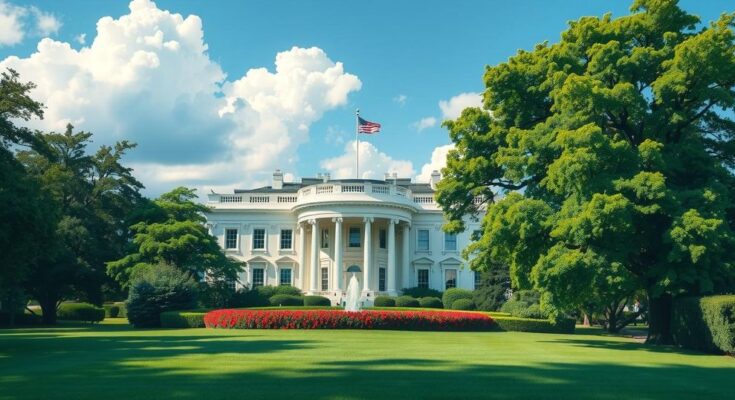South African President Cyril Ramaphosa will meet with President Trump next week amidst rising tensions related to the arrival of Afrikaner refugees in the U.S. The discussions scrutinize allegations of racial discrimination in South Africa against Afrikaners, as both leaders aim to reset their countries’ strategic relationship while navigating a complex historical and socio-economic landscape.
South African President Cyril Ramaphosa is set to visit the White House next week, as reported by his office on Thursday. This meeting is particularly significant since it coincides with the arrival of the first group of White South Africans, who recently received refugee status under a policy established by the Trump administration. Ramaphosa aims to use this visit as an opportunity to reshape the strategic relationship between South Africa and the United States. The two leaders are scheduled to meet on Wednesday, May 21, but the White House has yet to make an official comment on this planned encounter.
The timing of Ramaphosa’s visit raises eyebrows amidst renewed tensions with the White House, especially following the arrival of 59 individuals from South Africa’s Afrikaner community. Upon their arrival in Washington, Deputy Secretary of State Christopher Landeau addressed the group, stating they have faced “egregious discrimination” in their home country. Additionally, State Department spokesperson Tammy Bruce referred to the Afrikaners as a “vulnerable group facing unjust racial discrimination in South Africa,” highlighting the gravity of their situation.
However, President Ramaphosa has rebuffed the Trump administration’s characterizations regarding the treatment of Afrikaners, labeling the claims as “not true,” according to information from BBC News. Moreover, he controversially described those leaving for the United States as “cowardly,” asserting, “When you run away you are a coward.”
So, who exactly are the Afrikaners? They are White South Africans primarily of Dutch descent, having settled in South Africa for the past four centuries. In addition to English, they speak Afrikaans, which stems from Dutch and has official status in South Africa. Historically, in 1948, as the nation sought independence from British rule, the White minority enacted apartheid, restricting political power and land ownership for Black South Africans. The apartheid system was dismantled in 1994, allowing all South Africans to vote, with Nelson Mandela’s African National Congress emerging victorious, marking the dawn of democratic rule in the country.
Despite the end of apartheid, significant disparities persist. A recent report from the South Africa Human Rights Commission reveals that nearly 64% of the Black African community lives in poverty, compared to just 1% of White South Africans. This stark contrast illustrates the ongoing socio-economic divide more than three decades after apartheid’s conclusion.
The current claims of refugee status from Afrikaners stem partly from a new law signed by Ramaphosa in February. This law permits the state to confiscate land without compensation in cases deemed “just and equitable.” Although the legislation’s wording does not specifically target White South Africans, many suspect it does, given their substantial land ownership. South African officials reject that any land confiscations or racial discrimination are occurring, asserting that the law only addresses underutilized land.
Incidents of violence against farmers in South Africa have also contributed to the narrative; however, the government claims these issues are tied to broader crime-related factors. During a meeting with the arriving Afrikaner group, Landeau highlighted that they encounter “egregious and targeted threats.”
Former President Trump, alongside advisor Elon Musk—who himself hails from South Africa—has alleged that these developments represent a form of “White genocide.” Under Trump’s administration, an executive order prioritizing the resettlement of Afrikaners was enacted in February, while many other groups faced restrictions. This executive order specifically allows for Afrikaners to seek refugee status, mentioning their ethnic background directly.
For those wishing to apply for refugee status under this provision, the U.S. embassy in South Africa outlines several key criteria, including nationality and experiences of persecution or threats to their safety in South Africa.
The upcoming discussions between Ramaphosa and Trump promise to address these complex issues, although the atmosphere remains tense. The outcome may affect not just diplomatic relations but also the lives of many seeking refuge far from their homeland.
In summary, South African President Cyril Ramaphosa’s impending White House visit comes at a pivotal moment, highlighted by the arrival of Afrikaners seeking refugee status due to claims of discrimination in their home country. The relationship between South Africa and the United States is complicated by differing perceptions of what constitutes discrimination and the ongoing socio-economic divide in South Africa. As discussions evolve, the experiences of the Afrikaners will likely remain a focal point for broader diplomatic negotiations.
Original Source: www.cbsnews.com




